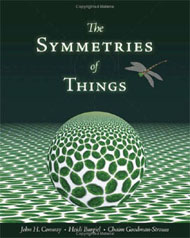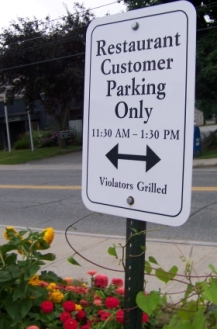Fraternal Birth Order Threatens Research into the Genetics of Homosexuality
According to a famous study: ” [E]ach older brother increases a man’s odds of developing a homosexual sexual orientation by 28%-48%.”
This means that sexual orientation is not uniquely defined by genes in the way that our blood type is defined. Indeed, if homosexuality was similar to blood type, the probability of giving birth to a homosexual would be the same for the same parents, independently of birth order. Furthermore, the fact that identical twin brothers quite often have different sexual orientation also supports my claim that it isn’t like blood type. On the other hand, there is some research that shows that there is a genetic component to sexual orientation. This might mean that there are genes that increase a predisposition in a man to become gay or it could be that there is a gay gene which determines their homosexuality for some part of the gay population — or both.
The research into a genetic component of gayness shows that there might be some genes in the X chromosome that influence male homosexuality. It also shows that the same genes might be responsible for increased fertility in females.
By the way, this fascinating research provides an explanation of why “gay genes” — if they exist — do not die out, as evolutionary laws might lead us to expect.
The theory that the probability that someone will be gay is dependent on the fraternal birth order impacts in several interesting ways on the whole field of research into the genetics of homosexuality.
Let us create a theoretical model where homosexuals would be born randomly with a fixed probability if they are the first sons of a woman, and increasing probability for subsequent sons. In this model there would be two interesting consequences:
- Mothers of homosexual men would be more fertile on average than mothers of men in general. Remember, this random consequence can be misinterpreted as a genetic correlation between homosexuality and fertility.
- If a homosexual person has a brother, then the probability that this brother is homosexual might be very different from the probability that a random person is homosexual. Again, this might create the suggestion that there is a genetic component, when it is not there.
My point is that all genetics research on homosexuality should take into account these two consequences and adjust for them. That means that it is not enough to show that brothers are more likely to be homosexual in order to prove that there is a genetic component. It needs to show that the correlation between relatives is much stronger than the correlation resulting from the birth order.
For people who are not mathematicians, I will build simple models that illustrate my points. Let us consider some extreme theoretical examples first.
First model. Suppose mothers only give birth to sons and only to one or two sons. Suppose the first son has a zero probability of being gay (which means that first sons are never gay) and the second son has a probability of one of being gay (which means that second sons are always gay). Then all mothers of gay men will have two sons, while mothers of random boys will have somewhere between one and two sons. Another result will be that all gay boys in this model will never have a gay brother.
Second model. Suppose mothers only give birth to one or three sons. Suppose the first son has a zero probability of being gay and the second and the third sons have a probability of one of being gay. Then all mothers of gay men will have three sons, while mothers of random boys will have somewhere between one and three sons. Another result will be that all gay boys in this model will always have a gay brother.
Third model. Let us take some more realistic numbers. Let us consider only the case of women who have one or two boys. Let a be a probability of a woman to have one boy, and correspondingly, 1-a to have two boys. Suppose N is the total number of women in consideration. Suppose x is the probability of the first boy to be homosexual and y is the probability of the second boy to be homosexual. We assume that these probabilities are independent of each other.
Let us first estimate the total number of boys born. It will be aN + 2(1-a)N. The number of homosexuals that are born is expected to be xN + y(1-a)N. The probability of a random boy to be a homosexual is (x + y(1-a))/(2-a).
Let us see what happens with fertility. For a random boy (including both homosexual and non-homosexual boys), what is the average number of sons his mother has? It would be one son for aN boys who are from one-boy families and 2 sons for 2(1-a)N boys who are from two-brother families. Hence a mother of a random boy has on average 2 – a/(2-a) children.
Let’s see what happens with homosexual boys. We have axN homosexual boys from one-brother families and (1-a)(x+y)N gay boys from two-brother families. Hence the average number of sons for their mothers is (axN + 2(1-a)(x+y)N)/(axN+(1-a)(x+y)N) = (ax + 2(1-a)(x+y))/(ax + (1-a)(x+y)) = 2 – ax/(x+y-ay). If we denote by r the ratio y/x, then the result will be 2 – a/(1 + (1-a)r). If r is more than 1, then mothers of gays are more fertile then average mothers. If we assume that y = 1.5x and a = .5, then the average number of sons for a mother of a random boy is 1.667 and for a homosexual boy, it is 1.714, a 3% increase. The impact will be stronger if we take into consideration three-boy families.
Now let us look at brothers in two-son families. There is a total of (1-a)N such families and they have a total of (x+y)(1-a)N gay boys. We have 2xy(1-a)N gay boys who live in families in which both brothers are gay. Hence, the probability of a gay boy who has a brother to have a gay brother is 2xy/(x+y). We saw earlier that the probability of a random person to be gay is: (x + y(1-a))/(2-a).
Let’s look at these numbers more closely. You can easily see that if x = y these two probabilities are the same — as they should be. If x = 0 and y > 0, then a gay person never has a gay brother, suggesting negative correlations with a genetic component. Suppose y = rx, where r is a constant. Then the first number is 2rx/(1+r) and the second number is: x(1+r(1-a))/(2-a). We see that the ratio of these two numbers doesn’t depend on x and is equal to 2r(2-a)/(1+r)(1+r-ar). Suppose r = 1.5, then the ratio is 2.4(2-a)/(5-3a). If a = .5, this ratio is 1.03. So, in this model, for a gay boy who has a brother, the probability that this brother will be gay is 3% higher than the probability that a random man will be gay.
I am so fascinated with the fact that a property that depends on the birth order can create an illusion of a genetic component. I am not discounting the possibility of a genetic component for male homosexuality, but I urge researchers to recalculate their proofs, adjusting for the impact of the fraternal birth order.
To be fair, the female fecundity correlation with male homosexuality was shown not only in mothers of gay men, but also in maternal aunts. Also, the increase in the probability of being gay for a brother of a gay man is very much higher than 3% in my model. That means these researches might survive my critique. Still, they ought to look at their numbers again.
Finally, this discussion is not really about homosexuality, but about any property that depends on birth order. In this case, such a property might imply a genetic component that doesn’t really exist.
Share:



 I updated my
I updated my 